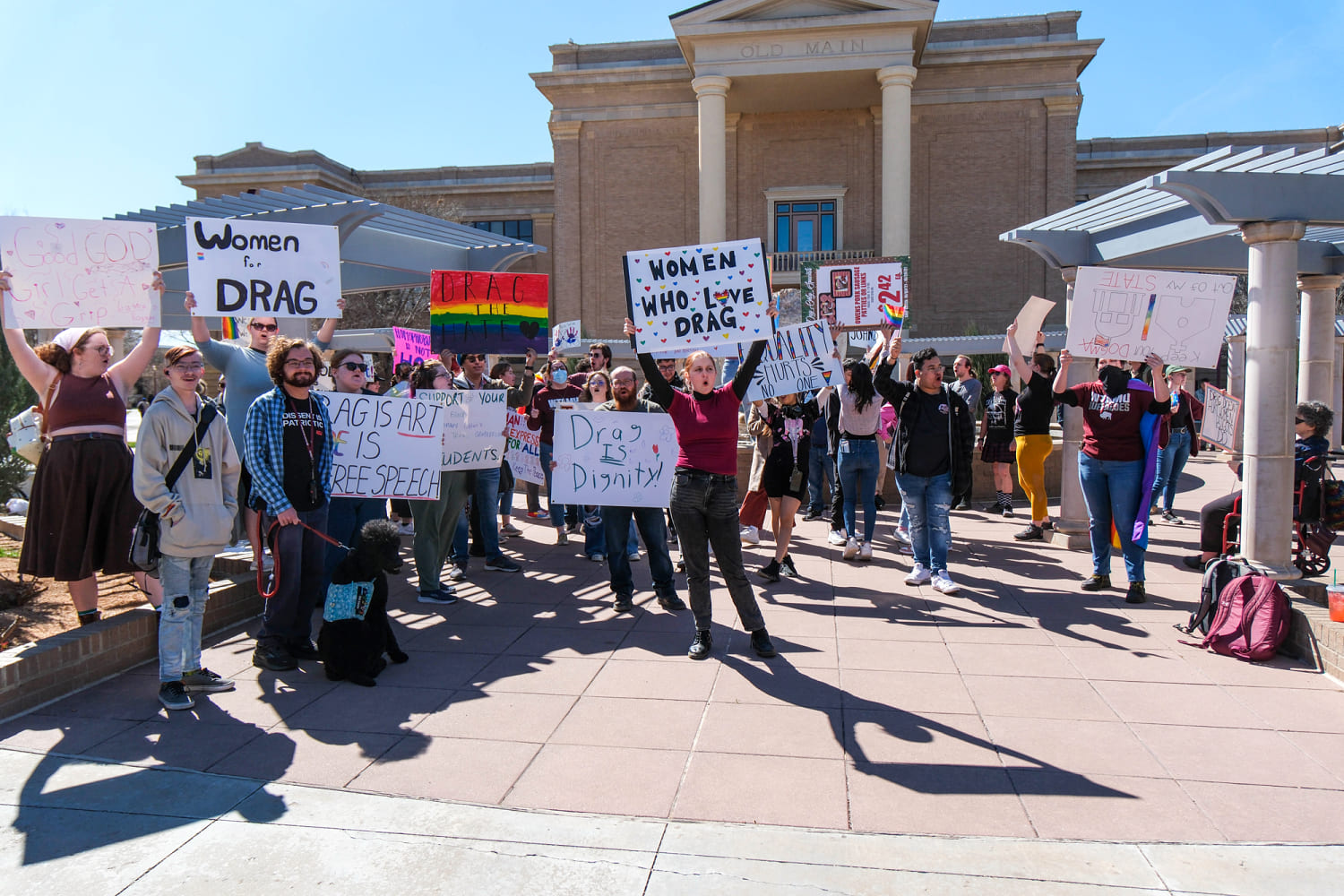
WASHINGTON — The Supreme Court on Friday rejected a request made by an LGBTQ student group that was hoping to host a “PG-13” drag show on the campus of West Texas A&M University over the objections of administrators.
The court decision in a brief unsigned order means the group, Spectrum WT, likely will not be able to hold the event on March 22 at an on-campus facility.
No dissenting votes were noted and the court did not explain its decision.
JT Morris, a lawyer representing Spectrum WT, said the group will continue to protest the ban, with oral arguments coming up in the New Orleans-based 5th U.S. Circuit Court of Appeals next month.
“The show is not over,” he said. Morris works for the Foundation for Individual Rights and Expression, which backs free expression on college campuses.
A university spokesman declined to comment.
The university’s president, Walter Wendler, blocked a similar event last year and has described drag shows as “derisive, divisive and demoralizing.”
West Texas A&M is a state college in the panhandle area of the state. Wendler has spoken about wanting the university to reflect the conservative Christian values of the area.
The LGBTQ group says its members’ free speech rights under the Constitution’s First Amendment were violated, pointing to a university policy that bars administrators from denying access to facilities based on the political, religious or ideological views.
The facility in question, Legacy Hall, is a performance space that has been previously used for drag shows, beauty pageants and concerts, the plaintiffs said.
The dispute arose last year when Spectrum WT’s plans for hosting a similar event were blocked. Organizers said the plan was to show support for the LGBTQ community with an event that would not include lewd or profane activity. The performances would be aimed at an audience of people at least 13-years-old they said.
Wendler then issued a message to the university saying it would not host drag shows, saying they stereotype women. He added there was no such thing as a “harmless drag show.”
Spectrum WT sued, seeking an injunction, and moved the event off campus when it did not receive one.
Attention then turned to this year’s event, with Spectrum WT renewing its request for an injunction. The university argued in its defense that drag shows are not expressive activities, meaning there was no free speech violation.
In September, U.S. District Court Judge Matthew Kacsmaryk rejected the request for an injunction. The group turned to the Supreme Court after the appeals court failed to act in time.
Texas Attorney General Ken Paxton, who represents college officials, noted in court papers that the university already has a policy prohibiting “disruptive, lewd or indecent” behavior and that drag shows can be in violation by “celebrating conduct that causes many to feel demeaned and objectified.”
Paxton also said the plaintiffs waited too long to seek Supreme Court intervention.
